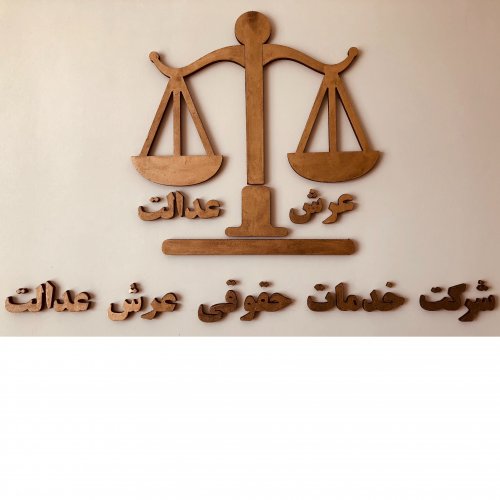Best Lawsuits & Disputes Lawyers in Kabul
Share your needs with us, get contacted by law firms.
Free. Takes 2 min.
List of the best lawyers in Kabul, Afghanistan
About Lawsuits & Disputes Law in Kabul, Afghanistan
Lawsuits and disputes law in Kabul, Afghanistan covers a wide spectrum of disputes including commercial litigation, personal injury claims, and civil rights grievances. The law is essentially formed by provisions in the Afghan Civil Code, the Afghan Commercial Code and the Constitution of Afghanistan. Access to fair and equal justice can be challenging due to ongoing conflict and instability, but efforts are underway to strengthen the rule of law.
Why You May Need a Lawyer
Engaging a lawyer can be beneficial in a multitude of scenarios. If you're involved in a business-related dispute such as breach of contract or a property dispute, the legal process can be complex and would require expert inside. Similarly, for personal injury claims or disputes related to family law, a lawyer can help navigate through the legal systems, upholding your rights and interests. Moreover, a lawyer will provide representation if a dispute escalates to a lawsuit in the courts.
Local Laws Overview
The local laws in Kabul are primarily influenced by civil law, Islamic law (Sharia), customary law (Urf), and statutory law. In the context of lawsuits and disputes, dealing with local Afghan law can be intricate because it's a mixture of various legal traditions. Commercial laws are governed by the Afghan Commercial Code, while personal disputes like inheritance or marital issues are often decided using Islamic law. Civil rights grievances can be addressed with the provisions of the Afghan Constitution which guarantees equal rights and protection for all citizens.
Frequently Asked Questions
What types of disputes are most common in Kabul?
Commercial disputes, property disputes, domestic issues, and personal injury claims are amongst the most common types of disputes encountered in Kabul.
How are lawsuits initiated?
Lawsuits are initiated by filing a complaint with the court, which is then served to the defendant. The defendant is required to respond with a statement of defense, proceeding to pre-trial and possibly trial stages.
How long does a typical lawsuit take?
The duration of a lawsuit can greatly vary depending on the complexity of the case and the efficiency of the courts. It can take from few months to several years.
Can a foreigner file a lawsuit in Kabul?
Yes, a foreigner can file a lawsuit in Kabul. However, they may need to hire a local lawyer who is familiar with local law and the court system.
Are court sessions public?
Generally, court sessions aren't public in Kabul. However, there are exceptions, such as when a case involves public figures or important public issues.
Additional Resources
The Afghanistan Independent Bar Association (AIBA) and the Afghan Ministry of Justice are valuable resources when seeking legal advice. They can provide useful information and offer support regarding dispute resolution, legal counsel services, and court proceedings. The United Nations Assistance Mission in Afghanistan (UNAMA) also provides regular reports on the human rights situation in Afghanistan, which can be helpful in certain cases.
Next Steps
If you need legal assistance in a lawsuit or dispute, it is highly recommended to consult with a lawyer. The lawyer will assess the situation, provide advice, prepare required documents, and represent you in court if necessary. You can contact local law firms or the legal aid division of AIBA for assistance in finding a lawyer.
Lawzana helps you find the best lawyers and law firms in Kabul through a curated and pre-screened list of qualified legal professionals. Our platform offers rankings and detailed profiles of attorneys and law firms, allowing you to compare based on practice areas, including Lawsuits & Disputes, experience, and client feedback.
Each profile includes a description of the firm's areas of practice, client reviews, team members and partners, year of establishment, spoken languages, office locations, contact information, social media presence, and any published articles or resources. Most firms on our platform speak English and are experienced in both local and international legal matters.
Get a quote from top-rated law firms in Kabul, Afghanistan — quickly, securely, and without unnecessary hassle.
Disclaimer:
The information provided on this page is for general informational purposes only and does not constitute legal advice. While we strive to ensure the accuracy and relevance of the content, legal information may change over time, and interpretations of the law can vary. You should always consult with a qualified legal professional for advice specific to your situation.
We disclaim all liability for actions taken or not taken based on the content of this page. If you believe any information is incorrect or outdated, please contact us, and we will review and update it where appropriate.
Browse lawsuits & disputes law firms by service in Kabul, Afghanistan
Kabul, Afghanistan Attorneys in related practice areas.









